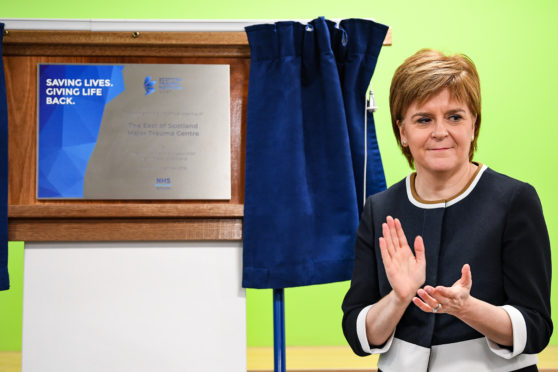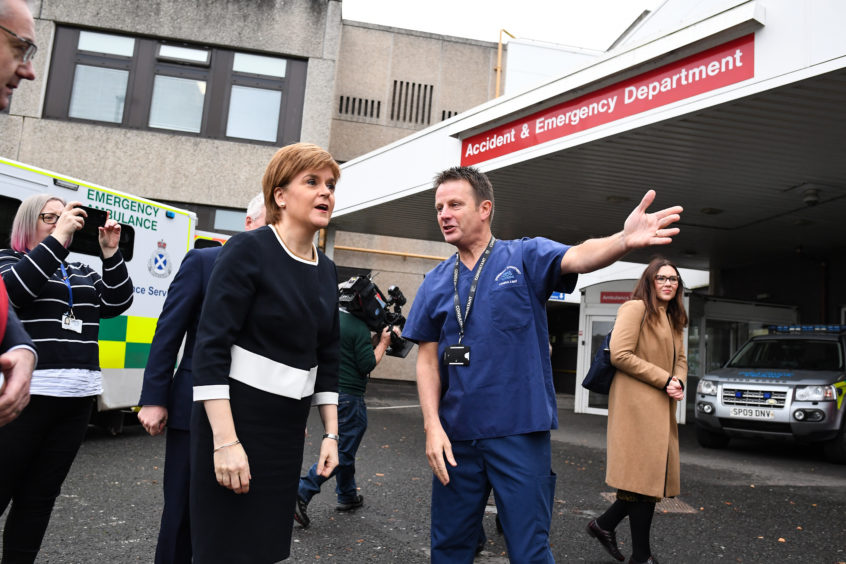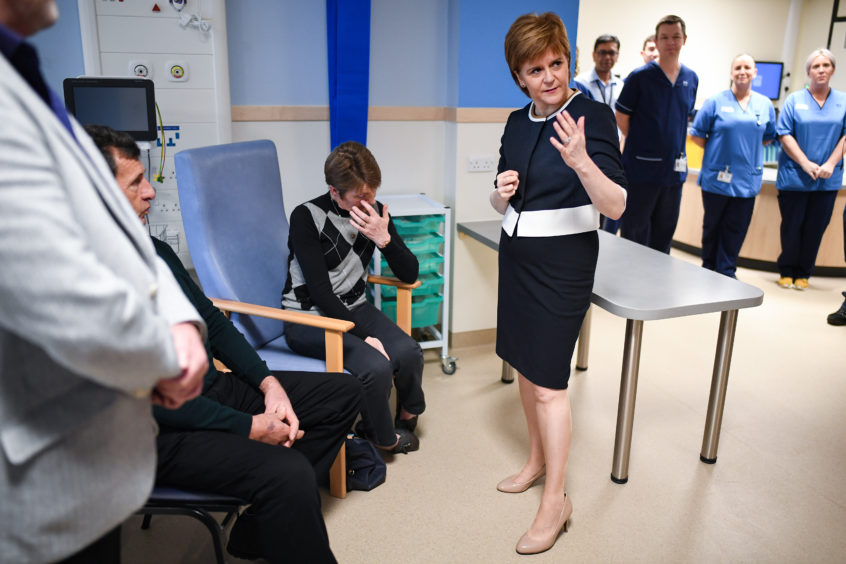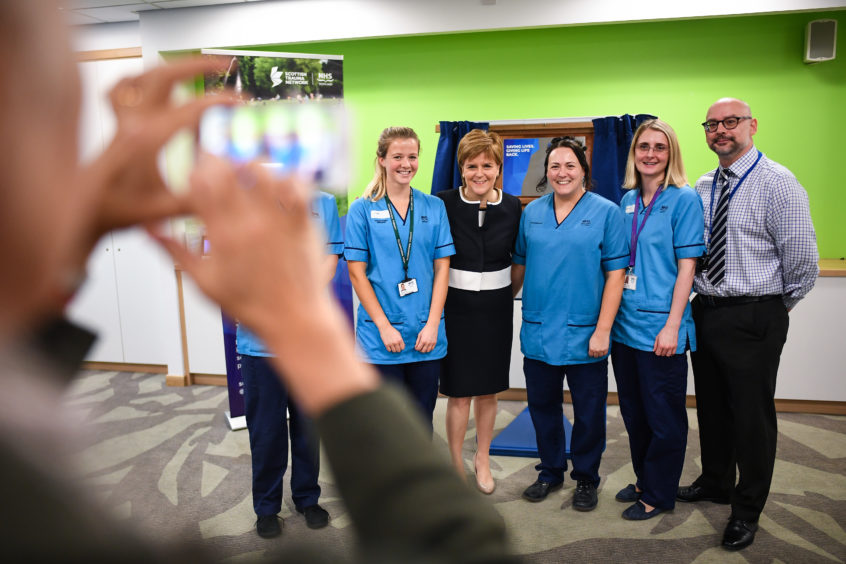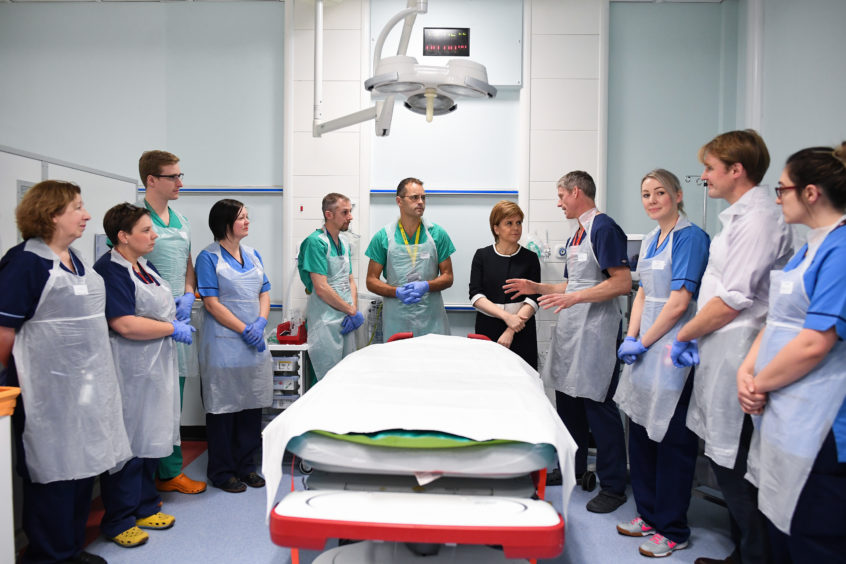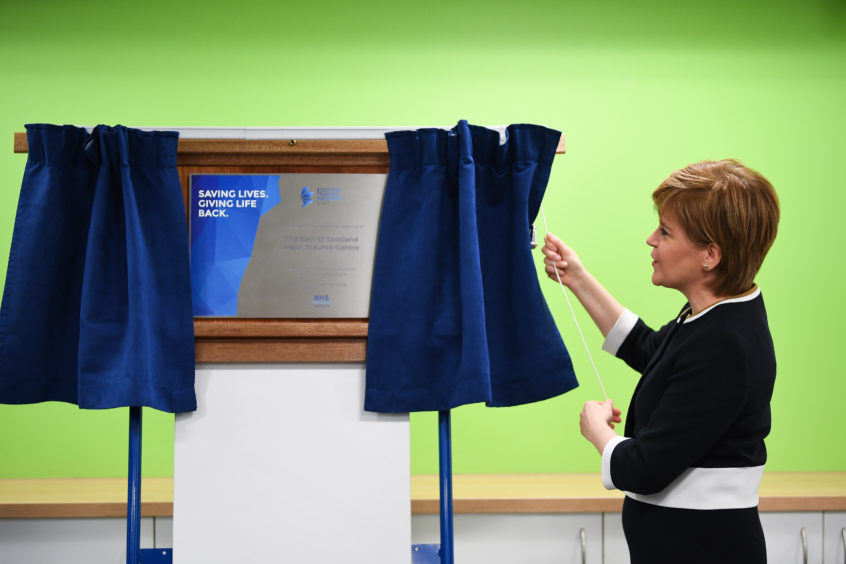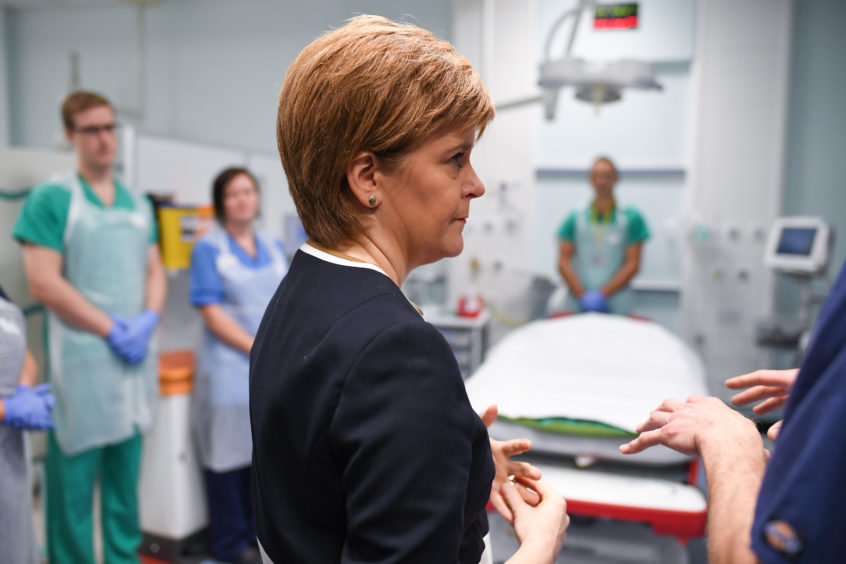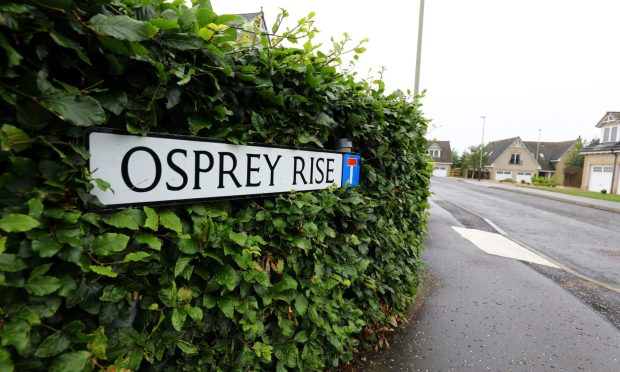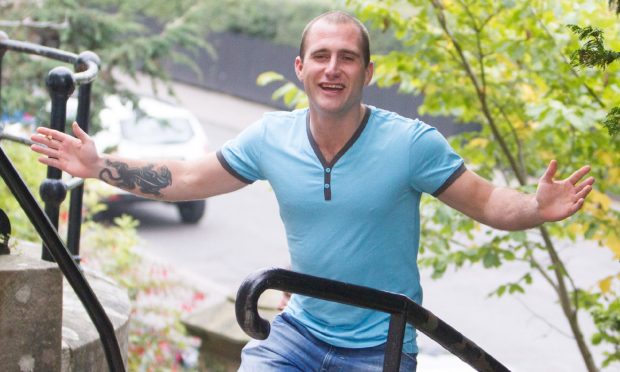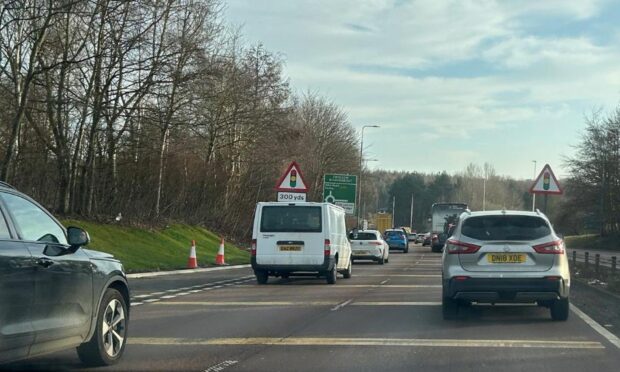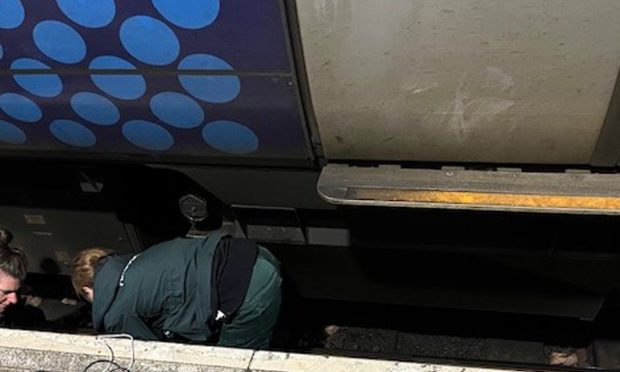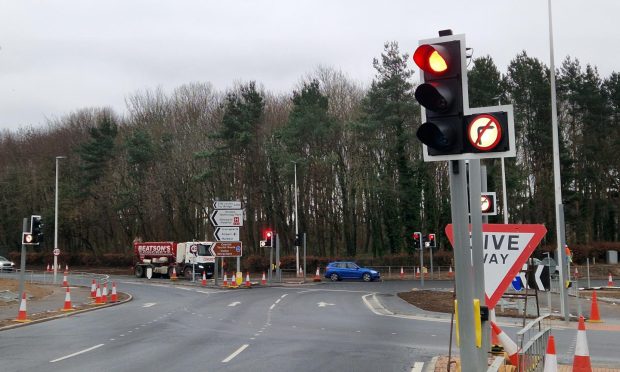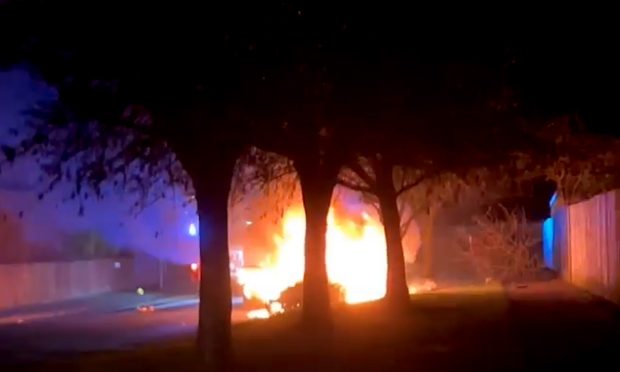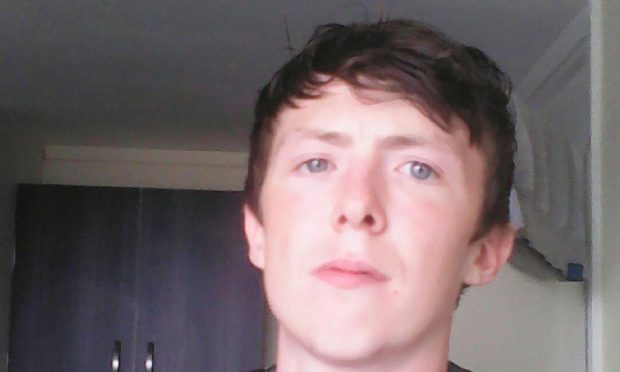The First Minister opened Scotland’s newest major trauma centre in Dundee.
The East of Scotland centre is the second of its type in the country, after its Aberdeen counterpart was launched last month.
The centre was originally supposed to open in 2016 but the Scottish Trauma Network will not be fully open until at least 2021, the First Minister said.
Nicola Sturgeon unveiled a plaque at the centre, which is located within the Ninewells A&E concourse and met with current NHS Tayside chairman John Brown and chief executive Malcolm Wright, as well as consultants and patients recovering from traumatic incidents.
The centre and team will allow for “seamless” patient care, from the moment a casualty is treated at the scene of an accident to the day they are discharged and beyond.
The network has received £5 million and will be further supported with an additional £10.2 million from this year’s budget.
Dr Michael Johnston, clinical lead for major trauma and consultant in emergency medicine with NHS Tayside, said: “This centre will see the establishment of a major trauma service providing coordinated highly specialist treatment, care and rehabilitation for the most critically injured patients.
“The major trauma service is about creating a dedicated speciality team around the patient. This begins at the roadside and continues until the patient arrives at the centre where the assembled hospital based trauma team is ready to receive them, right up until the patient is discharged.
“This collaborative way of working ensures treatment is brought forward at the correct time and crucially making sure that rehabilitation starts very early in the patient’s pathway of care.
“We know that this way of working does produce better outcomes for seriously injured patients.”
The First Minister said: “The Scottish government has already ensured funding per head of population in Scotland is already higher than it is in the rest of the UK, the gap there is around £850 million pounds a year so we have given very strong commitments.
“There will be implications for the health service from Brexit and the more chaotic those negotiations are the more serious the impact will be, but in terms of funding we have got plans going forward to make sure the NHS will be properly protected.
“It will be 2021 before the Trauma Network is complete with the four major centres, but already you will be able to see the difference this approach is making to people’s lives.”
‘Network of centres will save more lives’
Scotland’s second trauma centre will save more lives of people who suffer catastrophic injuries, professionals have said.
The network that will be formed will work as a collaboration between the NHS in Scotland and the Scottish Ambulance Service, is part of efforts to provide “seamless” care.
Patients recovering from traumatic incidents, such as head-on collisions and other road traffic accidents, have spoken of their support for a more co-ordinated approach to aftercare, making sure they are not left behind once the physical injuries have been “stitched up”.
Dundee’s centre, based at Ninewells, will link in with the Scottish Trauma Network to centres in Aberdeen, Glasgow and Edinburgh.
The Aberdeen centre was opened in October, while the Edinburgh and Glasgow units will be open by 2019, according to NHS Scotland.
The first minister has said the co-ordinated network will be fully operational by 2021.
The Scottish Government has said the budget for the network will increase to £27 million – from £5m this year – by the turn of the decade, which it has “anticipated” in its spending plans.
Martin McKechnie, national clinical lead for the Scottish Trauma Network, said: “Major trauma often results in life-threatening and life-changing injuries.
“The network has been working in collaboration with NHS boards and the Scottish Ambulance Service to improve and optimise the health and wellbeing of the seriously injured.
“The opening of this major trauma centre in Dundee, the second of four major trauma centres for Scotland, is an exciting milestone and highlights the ongoing work of the Scottish Trauma Network.
“This new approach to trauma care will save more lives and improve patient outcomes throughout the trauma pathway – from prevention to rehabilitation.
“On behalf of the Scottish Trauma Network, I would like to thank all staff for their continuing efforts to transform trauma care for patients in Scotland.”
